Getting older doesn’t mean giving up your strength or energy, but it does mean your body’s margin for error gets a bit smaller.

After 50, it’s the small things that start to flag when your health isn’t being looked after. And while struggling with one or two of these doesn’t mean you’re doomed, if most of them feel harder than they should, it’s probably time to take your fitness, diet, sleep, or stress levels more seriously. Here are some everyday signs your body’s asking for better care.
1. Climbing a single flight of stairs without getting winded

If you’re out of breath by the time you get to the top, it’s not just “getting older”—it’s a red flag for cardiovascular fitness. Your heart and lungs might be working harder than they should, even during light activity. You don’t need to be springing—it’s about whether your body can handle basic elevation without needing a recovery period. If stairs feel like a mountain, your stamina and circulation could use a bit of attention.
2. Getting up from the floor without using your hands
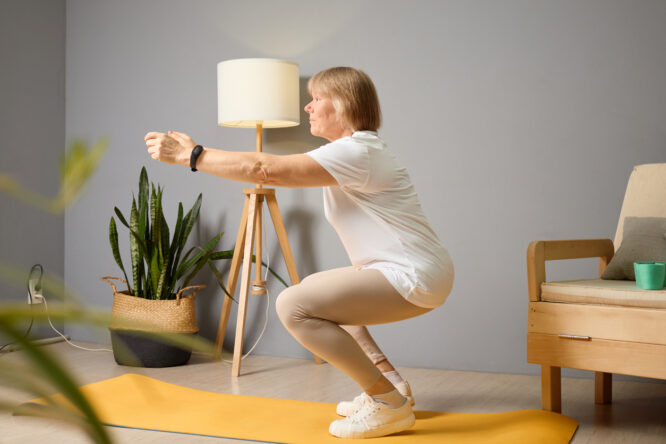
This one’s surprisingly revealing. If you need to push yourself up using your hands, knees, or furniture every time, it points to weakness in your core and legs—and declining mobility. It’s less to do with strength and more to do with stability. This kind of movement matters more as you age, especially because it’s directly tied to fall risk and long-term independence.
3. Carrying shopping bags without feeling exhausted

Heavy lifting isn’t just for the gym—real life involves bags, boxes, bins and basic effort. If two bags of groceries are enough to wear you out or make your arms ache, it’s a sign your muscle strength needs work. You don’t need to become a bodybuilder, but regular resistance training, even light weights, can make everyday strength feel like second nature again.
4. Standing on one leg for more than 10 seconds
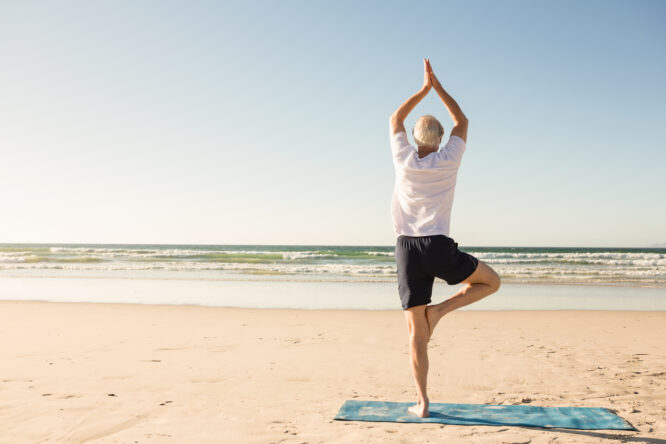
This sounds silly, but it’s one of the simplest balance checks. If you’re wobbling or needing to grab something after a few seconds, it’s a warning sign that your stability is slipping. Balance is more than just a confidence booster—it also helps prevent falls, injuries, and future mobility loss. You can improve it, but first you need to notice it’s gone a bit dodgy.
5. Buttoning your shirt without fumbling
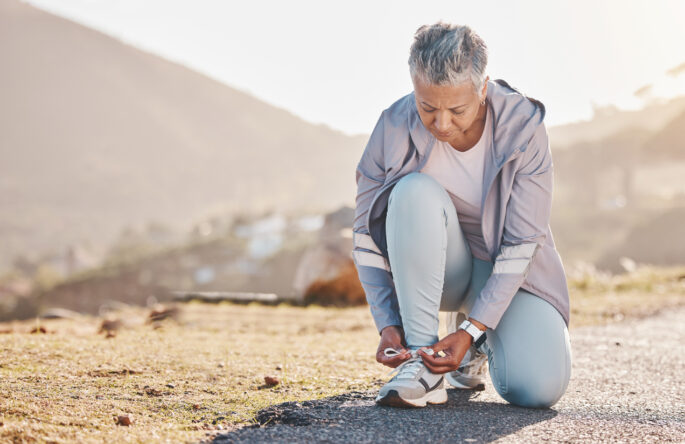
If fine motor tasks like buttoning, zipping, or tying laces have become noticeably more awkward, it could point to joint stiffness, nerve issues, or early signs of something like arthritis or diabetes-related nerve damage. This is one of those small things that people often brush off—until it becomes frustrating enough to avoid entirely. But don’t ignore it. Your hands are trying to tell you something.
6. Getting a full night’s sleep and actually feeling rested
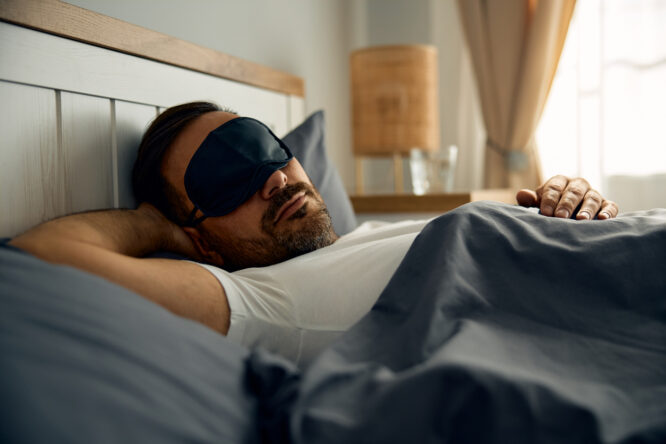
It’s not just about the hours—it’s about quality. If you wake up feeling groggy, tense, or more tired than when you went to bed, something’s off. Hormonal changes, stress, or poor sleep hygiene could be in the mix. Sleep is your body’s repair time. If it’s not doing the job, everything else—energy, mood, immune system—starts to wobble. And past 50, you don’t bounce back from poor sleep as easily as you used to.
7. Getting up from a chair without leaning or pushing off
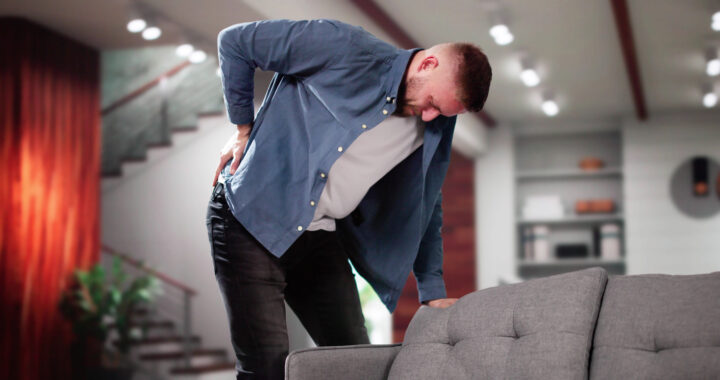
If standing from a seated position requires you to rock forward or use your arms for momentum, it’s often a sign of lower body weakness or poor posture habits that have crept in over time. This movement is essential for everyday independence—think toilet seats, car rides, and sofas. Struggling with it regularly is your cue to start strengthening those thighs and glutes again.
8. Walking at a normal pace without slowing down or shuffling

Changes in walking speed or stride can be subtle, but they’re telling. If you’ve started to walk more cautiously, drag your feet, or struggle to keep pace with other people, it’s time to check in with your joints, coordination, or even cognitive function. Gait changes can hint at issues beyond just leg strength. It might be balance, nerve feedback, or stiffness. The fix might be simple, but it starts with noticing the change.
9. Sitting for long periods without getting stiff or sore
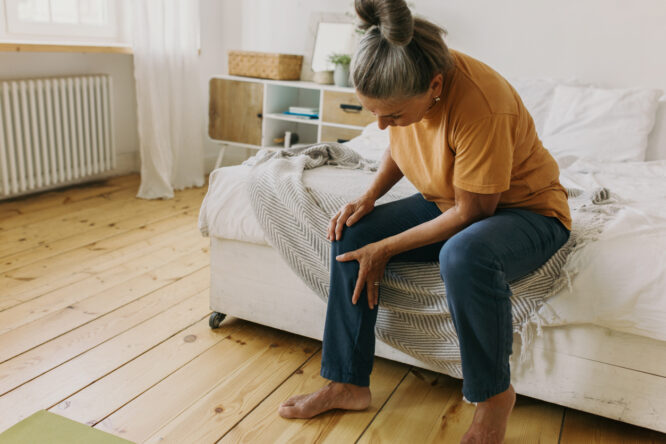
If you stand up after watching a film or working on the computer and everything creaks, that’s your flexibility fading, and your muscles telling you they need more movement. This kind of stiffness builds slowly, then becomes the norm. But it’s avoidable with basic stretching, mobility work, and moving more frequently than you think you need to.
10. Reaching up to a high shelf comfortably
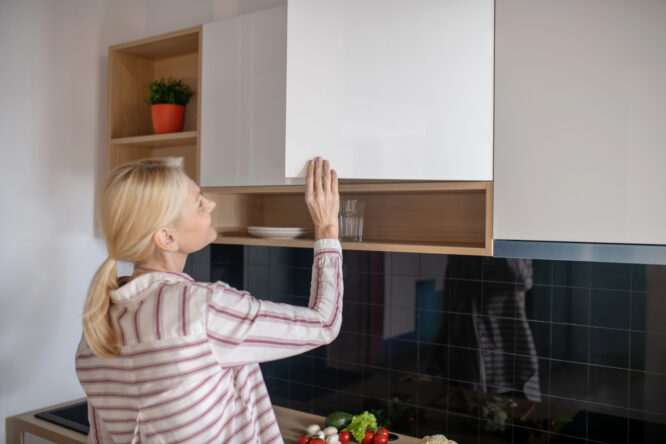
Shoulder mobility is one of the first things to decline, especially if you spend a lot of time hunched at a desk. If you find yourself avoiding high cupboards or wincing when reaching up, take note. Loss of range here can lead to long-term shoulder issues and more serious mobility limits down the line. A bit of daily stretching or movement training can prevent it from getting worse.
11. Walking up a slight incline without stopping to rest

Even a gentle hill or ramp shouldn’t leave you breathless. If your legs burn, your chest tightens, or you’re slowing down far earlier than expected, your cardiovascular health might not be where it should be. Inclines are a great real-world test of stamina and heart health. If a slight hill feels like Everest, it’s not just ageing—it’s a call to improve your baseline fitness.
12. Twisting to look behind you without discomfort

Whether it’s reversing the car or turning around to talk to someone, you should be able to rotate your spine without pain or resistance. If that’s become difficult, it likely means your back and neck flexibility is fading. It’s not just inconvenient—it’s a real safety issue when driving or moving around. Keeping your spine mobile isn’t just about stretching—it’s about staying functional.
13. Catching your balance if you trip slightly
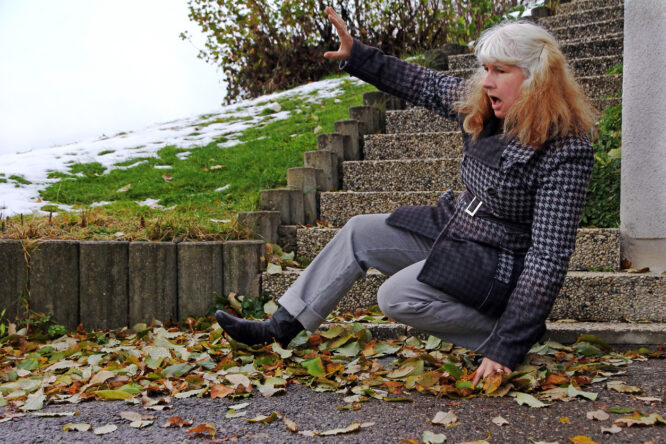
Trips happen. The real question is whether your body can react quickly enough to stop you from falling. If even small stumbles feel dangerous, it’s a sign your reflexes and coordination need work. It’s less to do with being clumsy and more about training your body to recover fast. Exercises that build core stability and footwork can dramatically improve this, no matter your age.
14. Bending down to pick something up without support
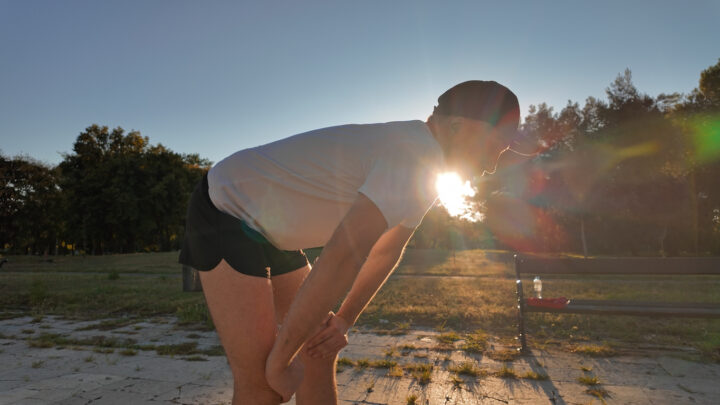
If picking something off the floor feels like a full workout—or worse, a fall risk—it’s likely your hip, knee, or back mobility isn’t where it should be. Squatting is a fundamental movement, not a luxury. You don’t need to be a yoga expert, but being able to bend and recover without drama is crucial for daily life, and not being able to do it is one of the clearest signs your joints are crying out for movement and care.
15. Recovering from a cold or minor injury in a reasonable amount of time

If minor bugs or bumps linger for weeks, it might not just be bad luck. Slower recovery times can signal that your immune system or general health is under strain, even if you’re not feeling particularly ill otherwise. How quickly you bounce back says a lot about your overall resilience. If your body is dragging its heels, it’s a sign it needs more support—through sleep, nutrition, stress management, and movement.




